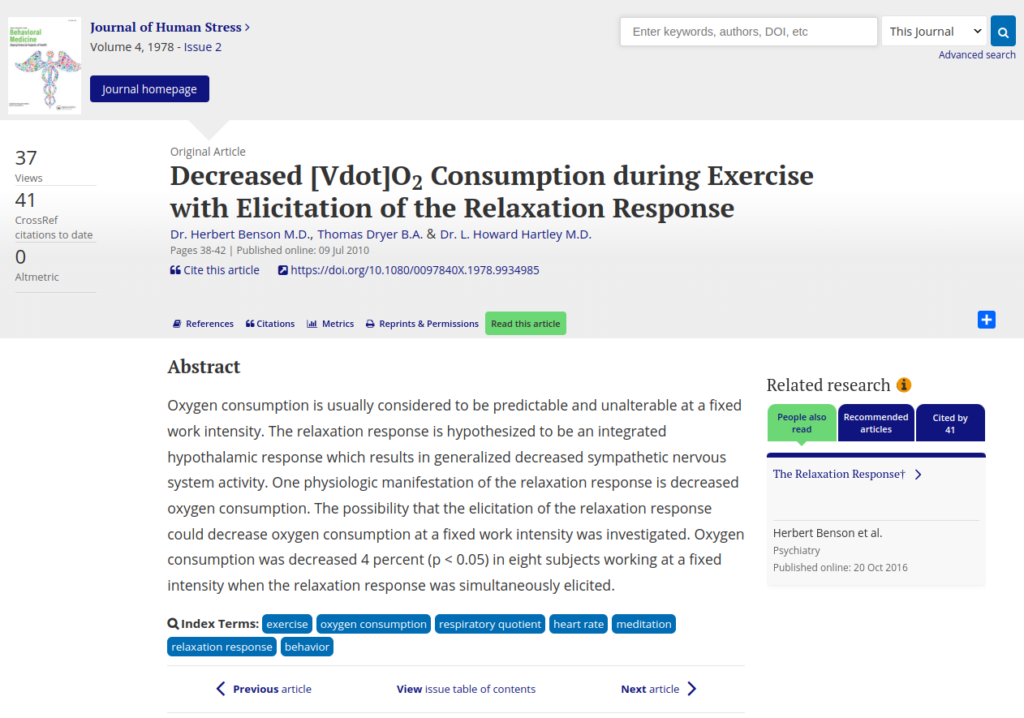Publication
Journal of Human Stress
Vol 4, Issue 2
Abstract
Oxygen consumption is usually considered to be predictable and unalterable at a fixed work intensity. The relaxation response is hypothesized to be an integrated hypothalamic response which results in generalized decreased sympathetic nervous system activity. One physiologic manifestation of the relaxation response is decreased oxygen consumption. The possibility that the elicitation of the relaxation response could decrease oxygen consumption at a fixed work intensity was investigated. Oxygen consumption was decreased 4 percent (p < 0.05) in eight subjects working at a fixed intensity when the relaxation response was simultaneously elicited.
Web and Email Links
Related Listings
Journal
Behavioral Medicine
This study evaluated the efficacy of the relaxation response on the postoperative recovery of 27 cardiac surgery patients randomly assigned to one of two groups. Thirteen experimental group patients received educational information and practiced eliciting the relaxation response before and after surgery. The 14 patients in the control group received only information. Experimental and control groups were compared before and after surgery on both physiological and psychological recovery […]
Journal
PLOS ONE
Recently, much scientific attention has been focused on resting brain activity and its investigation through such methods as the analysis of functional connectivity during rest (the temporal correlation of brain activities in different regions). However, investigation of the magnitude of brain activity during rest has focused on the relative decrease of brain activity during a task, rather than on the absolute resting brain activity. It is thus necessary to investigate the association […]
Journal
Behavior Modification
Sleep latency changes following behavioral interventions for sleep-onset insomnia are only moderate because the majority of insomniacs do not achieve good sleeper status at posttreatment. This study evaluated the efficacy of a multifactor behavioral intervention consisting of stimulus control and relaxation-response training (n = 10) compared to stimulus control alone (n = 10) for sleep-onset insomnia. Only the multifactor subjects' mean posttest sleep latency fell within the good sle […]

